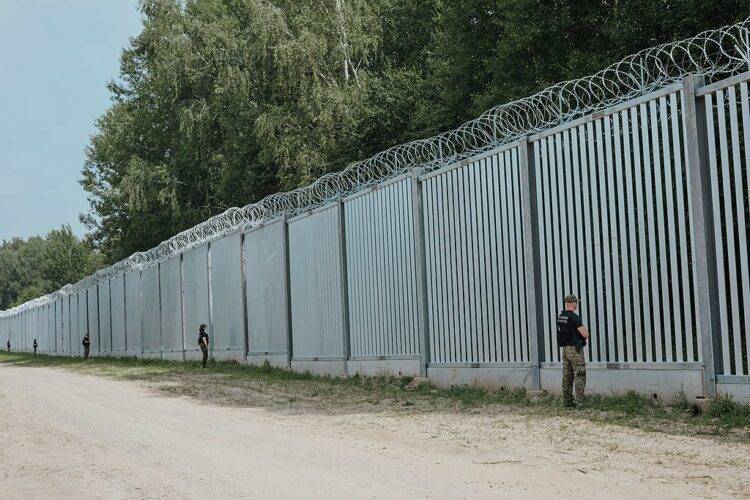A Polish soldier remains in critical condition after being stabbed by a migrant near the Poland-Belarus border. Deputy Defense Minister Cezary Tomczyk confirmed the soldier is fighting for his life following the attack, which occurred on Tuesday morning in the vicinity of Dubicze Cerkiewne, Podlaskie Voivodeship.
“The soldier is in a critical but stable condition,” Tomczyk announced, adding that the situation at the border remains extremely tense with frequent incidents. The attack took place around 4:30 AM, when a group of migrants attempted to illegally cross the border. The assailant stabbed the soldier through the gaps in the steel barrier, striking him in the ribs.
Medical Response and Current Condition
After being stabbed, the soldier received immediate first aid from Border Guard officers before being transported to a hospital in Hajnówka. Initially thought to be in stable condition, further examination revealed the severity of his injuries, necessitating additional surgery. “His life is no longer in danger, but he remains in a critical state,” stated Lieutenant Colonel Tomasz Kwiatkowski, Deputy Spokesperson for the General Command of the Armed Forces. Plans are underway to transfer the soldier to a hospital in Warsaw for further treatment.
Ongoing Border Tensions
Tomczyk highlighted the heightened tension at the eastern border, where around 300-400 illegal border crossing attempts occur daily, alongside dozens of other incidents. Currently, there are 6,000 soldiers and 1,500 border guards and police officers stationed at the border to manage the situation.
“Today’s incident underscores the severity of the security challenges we face,” said Tomczyk. He mentioned that the response by Polish forces is always proportional to the threat faced, emphasizing the soldiers’ right to defend themselves if attacked.
“Our soldiers are equipped to defend themselves, but they strive to react appropriately to each situation,” Tomczyk said, noting the severe risks and the importance of maintaining security at the border.
Broader Context and Reactions
The ongoing crisis at the Poland-Belarus border has been fueled by accusations that Belarusian President Alexander Lukashenko is orchestrating a hybrid war by facilitating the movement of migrants to the border. This strategy, aimed at destabilizing the region, involves transporting migrants from the Middle East and Africa to Belarus with promises of passage to Western Europe, only to force them to attempt illegal crossings into EU countries.
The attack has sparked reactions from various political figures, including Donald Tusk, who had previously criticized the construction of the border barrier. “We have always believed in defending our border, but we opposed makeshift solutions,” Tusk stated, pointing out that the current barrier, built by the PiS government, can be breached in about 20 seconds using a car jack.
Defense Minister Władysław Kosiniak-Kamysz also condemned the attack, describing it as a “bandit assault” orchestrated by Belarusian forces. “This organized aggression against our soldiers and officers is becoming increasingly severe,” he remarked, calling for stronger measures to protect the border.
As the situation at the Poland-Belarus border remains critical, the Polish government faces increasing pressure to address the security challenges and humanitarian issues. The recent attack on the soldier highlights the ongoing dangers faced by both border personnel and migrants. Moving forward, Poland must navigate these complex challenges while upholding its commitments to international law and human rights.
The crisis at the Poland-Belarus border began as part of a broader strategy by Belarus to destabilize the region by facilitating the movement of migrants to the EU’s eastern borders. The Polish government has responded with increased border security measures, but the situation remains tense with frequent violent incidents and ongoing humanitarian concerns.


















